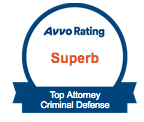Newport Beach Expungement Attorney | California PC 1203.4
An expungement is a post-conviction remedy sought typically after probation has been completed. In legal terms, an expungement petition is governed under California Penal Code 1203.4 permitting the court to withdraw the finding of guilt and dismiss the case under the expungement statute.[1] If the court grants the petition, a notation will be added to your criminal record reflecting that the conviction has been dismissed.
Felonies, misdemeanors, and infractions are all eligible for expungement provided you were not sentenced to state prison. In addition, this remedy is not available unless you’ve completed probation including paying all fines and fees, are not on probation for any other offense, and you have no pending cases currently against you.
Obtaining an expungement carries a substantial number of benefits especially for someone seeking employment in the private sector. Moreover, on most job applications, an applicant may legally say they have never been convicted of a crime after getting it expunged.[2] Additionally, an expungement may serve as a mitigating factor when applying for state licensing since you were declared to be statutorily rehabilitated for your offense. Furthermore, an expungement may help someone obtain U.S. citizenship or deter them from removal proceedings.

Process of Expunging Your Criminal Record
The first step entails filing a petition for dismissal with the court with the payment of a filing fee.[3] If applicable, the same form permits filing a motion to reduce a wobbler to a misdemeanor jointly with the expungement petition. Afterwards, the prosecuting agency must be served with sufficient notice of the petition and given ample time to contest the expungement.[4] A hearing will be held to determine whether you have been either statutorily rehabilitated as a matter of right or have proven to the court that you have portrayed good moral reform and will remain law-abiding. It may also be in someone best interest to attach character letters, certificates, and awards to their petition. Typically, the waiting period is approximately 45 days before the court will rule on your petition. If the court grants your petition, the order is immediately transmitted to the Department of Justice to update your record reflecting that the conviction was dismissed.
Contact an Experienced Newport Beach Expungement Attorney
To discuss your expungement, give us a call to speak with an Newport Beach Expungement Attorney or use our online contact form to schedule a consultation concerning the process, your eligibility, and turn-around time. The Law Offices of John D. Rogers offers free confidential consultations. Also ask about applying for a certificate of rehabilitation, early termination of probation, or reducing a felony to a misdemeanor.



Office Information
Law Offices of John D. Rogers
4000 MacArthur Blvd., East Tower Suite 615
Newport Beach, CA 92660
Toll Free: (949) 625-4487
LEGAL FOOTNOTES:
[1] http://www.leginfo.ca.gov/cgi-bin/displaycode?section=pen&group=01001-02000&file=1191-1210.5
[2] Lab. Code § 432.7 has been amended to make it a crime for employers to ask about or utilize in employment decisions “expunged” or “sealed” convictions under Pen. Code §§ 1203.4, 1203.4a, 1203.45 (juvenile misdemeanors sealing rights), and 1210.1 (Prop 36 non-violent drug possession).
[3] Pen. Code, § 1203.4(c) allows courts to determine the actual cost of “services rendered,” whether or not the petition is granted and order reimbursement from the defendant up to an amount of $120 if he or she has the ability to pay. Some counties have construed this language to allow the court to charge a filing fee for the petition. In Lewis v. Clarke, 108 Cal.App.4th 563, 133 Cal. Rptr. 2d 749 (2d Dist. 2003), as modified on denial of reh’g, (June 5, 2003), the court held that no filing fee may be charged prior to the filing of a petition under Pen. Code, § 1203.4, which requires the court to exercise discretion in determining whether the defendant is able to pay for the actual costs of services rendered.
[4] The prosecution must be served with written notice at least three days prior to the hearing if the application is pursuant to Pen. Code, § 1203.4a, applicable to misdemeanor sentences without probation (Pen. Code, § 1201.5). Pen. Code, § 1203.4(d), applicable to probationary sentences, requires that 15–days’ notice of the petition to expunge be given to the prosecution. If the prosecuting attorney fails to appear and object to the petition, the prosecution cannot appeal or otherwise object to the granting of relief.






